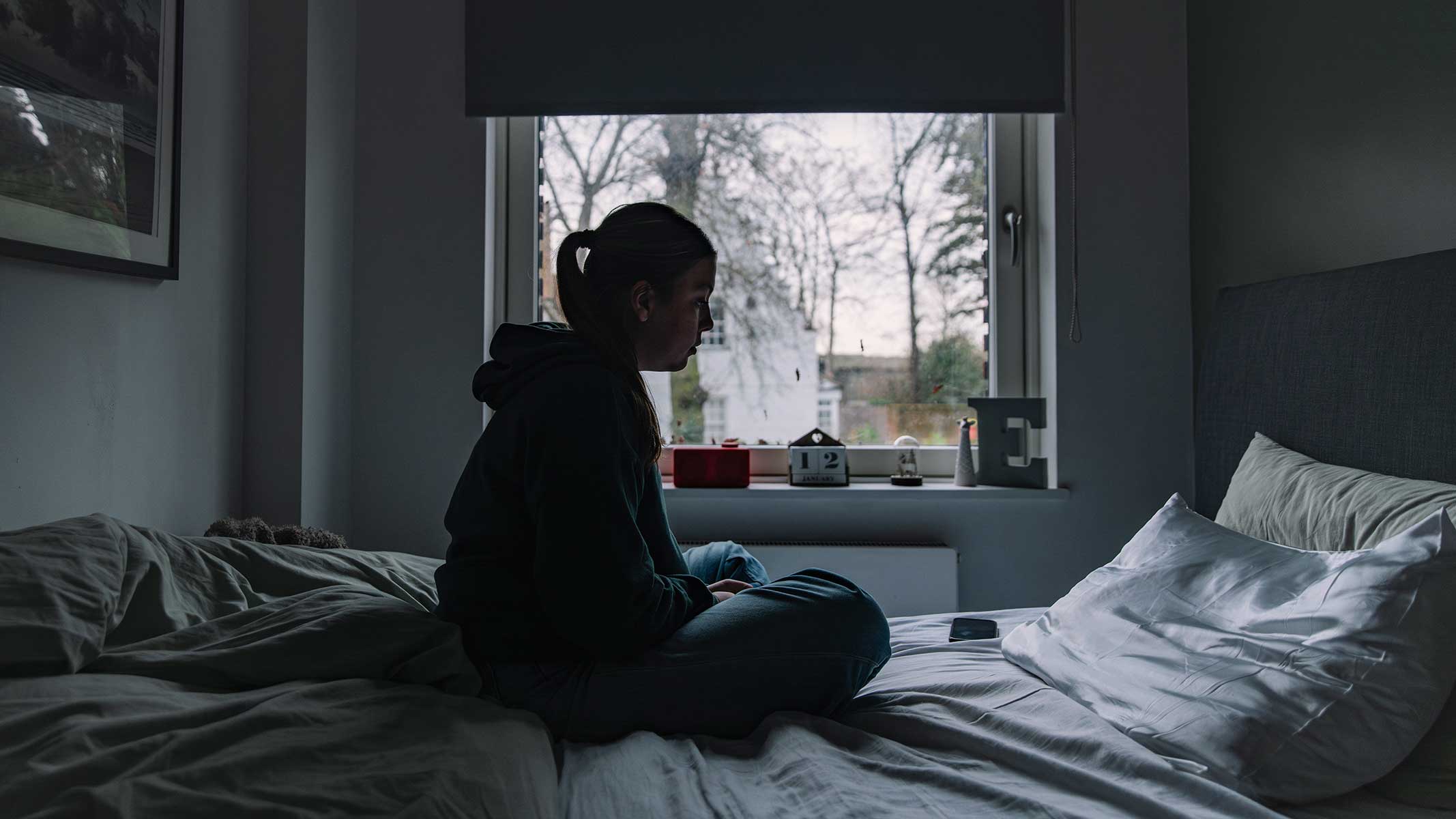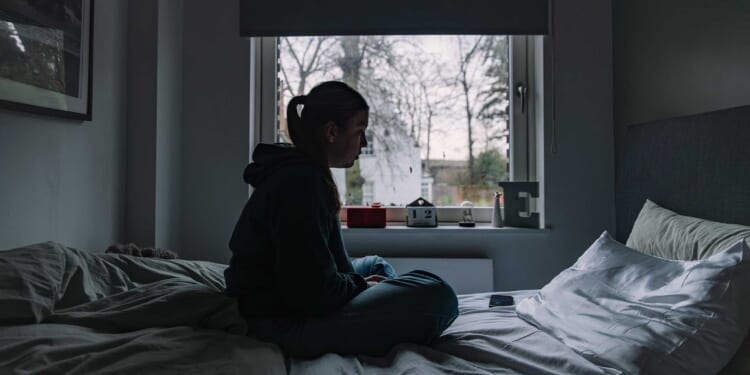
Why are so many young people struggling with mental health? Abigail Shrier, Rob Henderson, and Brian Anderson explore the roots of the crisis and examine the roles played by mental health professionals, shifting parenting styles, the influence of schools, and social media. Their conversation underscores the value of authoritative parenting, the importance of setting high expectations, and the need for parents to take a more active role in their children’s development within a culture increasingly shaped by therapeutic narratives.
Finally, a reason to check your email.
Sign up for our free newsletter today.
Audio Transcript
Brian Anderson: Welcome to this special episode of the City Journal Podcast. I’m Brian Anderson, the editor of City Journal, and I’m joined by two of my remarkable colleagues, Rob Henderson and Abigail Shrier. They’re also two of the sanest voices in the contemporary intellectual landscape. Rob’s the author of Troubled: A Memoir of Foster Care, Family, and Social Class, which is a moving account of his journey from foster care to Yale and Cambridge by way of the U.S. military and what it reveals about resilience and belonging. Abigail has sparked a national debate with a recent bestseller, Bad Therapy: Why the Kids Aren’t Growing Up, which argues that America’s therapeutic culture is leaving young people more fragile, not resilient.
Before we dive into today’s conversation, which will explore that theme and others, don’t forget to subscribe to the podcast so you never miss future episodes. And I should announce that we now have a Substack with extra content going beyond what’s on our regular website and physical magazine. It’s at cjmag.substack.com. Cjmag.substack.com.
So let’s get started with the big question, which is the youth mental health crisis. I just saw on X today the results of a presidential election survey from last year in which 72 percent of the female Gen Z respondents said that mental illness was a key part of their identity. And the young men were at 67 percent. So it was just as, I mean, it seemed to me like an outlier poll, but there’s lots of other evidence that something similar is going on. I’ve seen other evidence that 40 percent of young people have had some kind of mental health issue. One out of five kids has had a serious depressive incident. They’re handing out antidepressants like candy to young people. So Abigail, this is really something you’ve looked at closely in your book. How serious is this problem in your view? And what’s the biggest driver?
Abigail Shrier: Well, it’s a serious problem. It’s a problem of our making and that’s sort of the tragedy of it. We allowed mental health experts to create the problem of a mental health crisis in young people, and they did. And then we go back to them and ask them to remediate it, which they’re incapable of doing. They can’t do it because they’re the ones who provided all the bad advice to parents as to how to raise their children and what to do for them. And what that advice amounted to was a series of gentle parenting and other ideas that would encourage children to focus on their emotions, to become more dysregulated, more focused on themselves, more unhappy and more unstable. And that’s the result. And now they are in, unfortunately we’re asking them to fix it, but they’re in no position to do so.
Brian Anderson: Rob, your academic backgrounds in psychology, what’s your view of this phenomenon?
Rob Henderson: Well, I should be clear, I didn’t study clinical psychology, so my PhD was in social and evolutionary psychology. Sometimes the joke I’ll tell is I’m a psychologist, but not the kind that helps people. And actually, through reading Abigail’s book, it seems like the kind who are supposed to help people also aren’t helping people. Well, as I read Abigail’s amazing book, one thought occurred to me was, I do think the mental health experts have a lot to answer for. And then the teachers and educators who sort of co-opted the therapeutic framework for their own ends. But it also seemed as though many parents have lost confidence in themselves. And this is why they’ve decided to outsource so much of the parental responsibilities and authority and child rearing strategies to people who claim to be experts. I just think that so much of this wouldn’t have occurred, so much of this therapeutic language, these frameworks, had parents sort of stood firm in the first place. But some of the fault here lies not just with the parents or not even with mental health experts, but I think just sort of broadly cultural elites in our society who’ve been regularly attempting to sort of subvert and undermine this idea of the family unit.
Abigail Shrier: That’s right. I mean we have an entire industry of parenting experts who are giving lousy advice to parents, undermining their authority. And parental authority is the one thing we know every kid needs. We’ve known this since the 1960s. It’s one of the oldest psychological studies. It’s also one of the sturdiest from Diana Bommerend in the 1960s who found that loving rule-based parenting, not unloving, not cruel, but loving rule-based parenting where the parents are the authority and yes, they punish bad behavior, turns out to produce the healthiest, happiest, and most successful kids. And instead what parent, what parenting experts have gone out and do, because they don’t like this result, so what they do is they rebrand authoritative parenting as the opposite. They say, yes of course, authoritative parenting, and then what they do is they describe a parenting that is groveling, that is therapeutic, that is pleading with kids to behave, that is explaining ad infinitum, and it doesn’t work. It produces more dysregulated kids. And what they also do is they rebrand bad behavior as a psychological ailment or a, sometimes they even invent terms like I know Dr. Becky has the “deeply feeling kid.” This is a made-up term for basically a very dysregulated child who’s had no punishment and no accountability.
Brian Anderson: Let’s dig a little more into the school question. You know, I think you show in your book, Abigail, that schools have really embraced the therapeutic approach pretty aggressively, I would say going back a few decades now. And, you know, it’s expanding. So Governor Pritzker has just instituted mandatory mental health screening for school kids, I think as early as third grade, something like that. New York has recently passed legislation which is going to hugely expand the footprint of mental health services for young people, including setting up mental health units within a lot of public schools. Basically, and you have these social, emotional learning programs proliferating, you just have schools basically crawling with psychology people, therapists of some kind, even though they’re not really therapists, are they? And the operating assumption seems to be that all of these kids are suffering from some kind of a trauma or another. What are some of the very concrete aspects of this that you describe?
Abigail Shrier: Sure, well, you know, take Governor Pritzker’s new law in Illinois, for instance, you know, which will mental, will screen all young kids for mental, for, supposedly for mental illness, for suicidality, depression. Whenever you have a broadly applied screening tool, even if a pretty accurate one, if you screen large numbers of people for a low-incidence condition, you will generate very high numbers of false positives. And that’s what they’re going to do in the state of Illinois. They’re going to falsely identify many, many kids as suicidal or depressed. And the problem with that is then the therapists get involved with the parents. The parents are scared. And the kid begins to identify as a kid with depression. So it can forever change the trajectory of a child’s life. And I do believe that’s what we’re going to see.
Brian Anderson: So, you know, this is really a case of the schools putting themselves in between parent and child in a lot of ways. It’s kind of like a stealth attack, maybe not even a stealth attack, maybe a direct attack on parental authority. And you mentioned those surveys. I think it’s worth describing them a little more because I find them very, very disturbing. And you’re right, they’re going to, you know, kids who are in middle school in some cases and certainly high school kids and asking them, have you thought about suicide? Have you engaged in self-harm? Do your parents hate you? On and on. I think the phrase you use is they carry an entire worldview, an ontology to use the philosophical term.
Abigail Shrier: Yes, if you look through the surveys that have already, most of them by the way are authored by the CDC, but they’ve already been administered to schools throughout the country, school children throughout the country, and they ask a series of detailed, escalating questions about whether a child might want to self-harm and by what methods, and they present a panoply of popular options. I mean, one can imagine that this does a few things. First of all, it normalizes that behavior for kids. Second of all, it gives the kids a sense that everyone else is doing it. And third of all, presents the world as a very dark place where all kinds of really bad things are going on around them all the time. And so all of these things are going to be very bad for kids but also increase the likelihood they will engage in some of this bad behavior. I think most of the surveys that I’ve seen on mental health are incredibly irresponsible and likely to produce bad results.
Brian Anderson: You know it’s true though Rob of course that some kids do have really troubled backgrounds. As you can speak to directly, you wrote about it in your book, you grew up with a lot of chaos in California and foster care system. know some of your friends wound up in prison or dead. You say in that book that that could have easily been your path as well. So you know what do you do in a case like that? Do these kids need therapy coming through the schools? What kind of therapy? I think somewhere you wrote that the current therapeutic approach, which is based on kind of accommodating the background of such troubled kids, is in fact the exact wrong thing to do. And what you should do, or what schools should do, is just hold them to really high standards.
Rob Henderson: Yeah, well one thing that I appreciate about Abigail’s book is that she began by stating that there are people who do need therapy and who do benefit from it and that those are not the people that she is describing in the rest of the text. When I think about my own experiences, at the time, there were periods in my early life where I was mandated to see a therapist. Some days I felt better than others going through these sessions, but a point that I make in the book and that I’ve emphasized in other essays is that when you’re in the midst of extreme chaos and disorder, dwelling on it doesn’t really help you. What will that actually do for you? You’re already mired in dysfunction and then to just sort of sit there for an hour ruminating over it and being reminded of it repeatedly, I don’t think that’s very helpful.
I think one reason why I was able to escape that was because I, you know, was not constantly reminded of it. I found ways to cope with it on my own. And then later as an adult, a lot of that stuff kind of caught up with me and I dealt with it as an adult, which is something Abigail also emphasizes, that children, there’s probably an upper bound to how much therapy could help a kid. But as an adult, you know, you’re more on an even footing with your therapist and you’re able to communicate with them and correct maybe some of the assumptions that they’re making in a way that a kid can’t. And so, in my experience, I’m glad that the therapeutic culture and the kind of environment and milieu that I was in was not as pervasive as it is now.
With my friends, all of us sort of made it through into adulthood. Thinking about it, probably some of them as adults could have used therapy of one form or another. I mean, maybe not the kind that Abigail describes in Bad Therapy. Some of that seemed a little strange. But there are, I think, people out there who could benefit from it if they’ve actually gone through extreme chaos and turmoil and so on. One point that you make in your book is this interesting distinction between trauma and adversity, which I appreciated. Those are two very different things. And that if you experience certain kinds of adversity, you don’t necessarily need therapy, but we’ve sort of conflated. Everything is trauma now, every kind of hardship. But if you grow up the way that I did, that there is a kind of a trauma that lingers, but again, in the moment, it’s not helpful to dwell on it.
Abigail Shrier: One of the things I learned reading Rob’s book, Troubled, which really inspired me as I was writing Bad Therapy, was that he, and I hope, it’s okay to paraphrase, but what he said was essentially the one thing that people from deprived backgrounds rarely get that they desperately need, I’m talking about kids, is high expectations. I was incredibly moved by this, the idea that that is a resource that they rarely have available to them, kids from underprivileged backgrounds. And it struck me as so true and I thought back to you know my own grandmother, who I talk about in the book who had a very difficult upbringing and was in, you know, her mother died in childbirth and she ended up passed around to different relatives, ended up, you know, getting polio, was in an iron lung for a year and so forth. And one of the things that no one said to her and no one conveyed to her at school was, you’ve been through trauma. You’re a little broken. And unfortunately, that is the message that I think that teachers and schools are telegraphing to children. They understand what you’re saying. And what you’re saying is you can’t do what the other kids do. We understand that you’ve had trauma in your background. That’s a terrible message to give to capable young people who, especially ones who get so little encouragement that they can do what everyone else does and they can put a hard past behind them.
Brian Anderson: Do either of you think that schools should really get out of the mental health business entirely? Or curb it or rethink it?
Abigail Shrier: I think they should mostly get out of it. That doesn’t mean that there aren’t, you know, there isn’t a necessity for one mental health person on staff. If a child’s going through something difficult, a death of a parent comes to mind or things that are very difficult that they know there is someone they can go to and talk to. The problem is with mental health staff is first of all, they’re never available during vacation. They’re never available over the summer. So you’re setting a child up who has actual real need to be terribly bereft and disappointed. And the problem with these big mental health staffs is they can’t wait to treat the kids who don’t really need them. So at the very least, I would cut the mental health staff way back. In general, teachers playing therapists, counselors playing therapists is not a great idea. It’s certainly not great for helping kids.
Brian Anderson: Rob, would you agree with that?
Rob Henderson: Yeah, they’re not trained for it. It’s filtered through their own worldview, their own biases, and interferes with the purpose of school, of education. You’re supposed to teach kids, whatever, the three R’s, reading, writing, and arithmetic, and not let’s talk about our feelings today. And I think, especially for these kids in deprived areas where they’ll benefit far more from being equipped with academic skills than thinking about their problems and their own concerns and emotional difficulties. And it’s nice to have a space that’s separate from that. When think about my own experience of being able to go to school, which was where I wasn’t reminded of what was going on at home or what was going on around me. I had friends and I had my schoolwork and I had the teachers, and I was… The schools weren’t great, but they weren’t bad, and the teachers would attempt to hold me to a certain standard. I would never live up to it, but I did recognize that they saw something in me and that planted a seed in my mind that maybe later I could achieve something academically.
Abigail Shrier: It’s funny because when I was writing my book, I interviewed a woman who had adopted three very troubled children, very, very, there was a tremendous amount of abuse in their home. They had been through a great deal. They required a great deal of therapy to be able to function in a classroom. And what made the mom I talked to so angry about the mental health apparatus in the schools as she was getting, she was working with the kids to get them to a place where they could function, and to have teachers casually, or school counselors casually inquire about their trauma was completely counterproductive for these kids who were just trying to get through the school day.
Brian Anderson: Last thing they needed to hear in other words. You talk about the distinction between a kind of state awareness, you mentioned Rob, getting the kids to focus on their feelings to start the day, or a task awareness or a task orientation, which says well you have to learn this today and focus on something outside of yourself, and that the latter course is probably much healthier for most kids, I would say.
Abigail Shrier: Yeah, I think one of the things we’ve learned is that you don’t actually have to have, you don’t have to have had a hard childhood to create problems for yourself by dwelling on the childhood, the perfectly humdrum childhood you did have. Because we’re seeing kids claim trauma over the most benign incidents and believe it.
Brian Anderson: Yeah, I’ve seen this with my own kids, not them themselves so much, but the friends, my younger son in particular, they all talk about trauma all the time. And they’re all coming from intact families, know, upper-middle-class kids, but that’s the kind of lingua franca that they’re utilizing.
Abigail Shrier: Right and the problem is you could talk yourself into it. There’s a fantastic researcher named Cathy Widom whose book, whose research I really admire. She does these fantastic very rigorous long-term studies of children who’ve experienced traumatic events and one thing she found the last couple years was that she followed these kids and she documented those who had been through traumatic experience and those from the same area who had not, and she followed them through adulthood. And one of her fascinating findings was that believing and characterizing your childhood as traumatic was a bigger predictor of your poor mental health as an adult than actually living through a traumatic experience. So the adults who didn’t characterize even very difficult things, even abuse, as traumatic were actually able to demonstrate much greater resilience in adulthood than the ones who hadn’t maybe lived through anything that bad but had characterized it for themselves as traumatic.
Brian Anderson: Fascinating. You had mentioned parenting earlier, and the parents I don’t think should be let off the hook here entirely. I confess I get irritated when I’m in a cafe trying to do a little work or do a little reading, and there’s a young couple there, and they’re negotiating with their three-year-old who’s running through the cafe destroying everything because they don’t want to tell a kid no, you’re being bad, or interfere with them in any way because I guess this is going to be traumatizing. So where did gentle parenting come from as an idea? You started to get into this earlier, Abigail. We don’t want authoritarian parenting either, but where’s the right balance to strike between empathy or sanity and over discipline?
Abigail Shrier: I think a lot of it had to do with my generation. I’m at the tail end of Gen X, but it really was a generation that wanted to be cool. And they did not want to, there’s nothing less cool than telling your kid to go to your room, to go to their room. It is a terrible thing to do to punish kids. I mean, it feels terrible. It’s also necessary. It’s absolutely necessary to hold them accountable for bad behavior because you, the number one job of a parent is actually to produce good children who will go in society and make it better and contribute. And the problem with my generation is instead we came up with a different idea of what our goals were as parents. Our goals as parents were, in general, to have a good relationship with our kids. As friend. Parent as friend. And we were, we achieved that. And second of all to keep them physically and emotionally safe from every risky thing that could come into their orbit. And I think in general we achieved those things unfortunately at the cost of the kids.
Brian Anderson: Rob, you’ve lived through considerable instability again, as you describe in Troubled, but you’ve also studied the research on resilience. You didn’t experience gentle parenting, you experienced something different. What’s your view on this, looking at the research?
Rob Henderson: It was something like, I mean, was extremely permissive, neglectful parenting, but also it wasn’t the kind of permissive parenting that Abigail describes with the kind of hovering, helicoptering of, you know, like not enforcing boundaries, but still sort of monitoring and putting the air tag in the kids’ backpack and tracking their movements and checking in with their therapist and their teachers and sort of surveilling them from afar. I didn’t really have that.
And so on the one hand, it was difficult in some ways to not have any rules or guidance or boundaries. But on the other, looking back, I’m grateful that I had this extreme independence. And I learned what my boundaries were, what my limits were, what I was able to get away with and what I couldn’t, what the expectations were. And so, and I think that does, it cultivates a sense of resilience. There’s probably an optimal level of friction for a kid where if you have very little adversity, that’s not really great for kids. They never learn about themselves and about what their skills are, what they’re capable of, what their talents are. And then if you have extreme adversity, that can also be undermining and debilitating. But there’s some middle ground, I think, of… Ideally, you want a lot of that resilience to be cultivated from people who love you, from parents, from caregivers, from the people who are in your home, in your family unit. But that’s not really happening anymore. You’re seeing kids who… One thing that’s interesting here is that these parents who want their kids to think they’re cool, you know, they want to be the cool mom or the cool dad, those kids often don’t like their parents very much. There’s this extreme permissive parenting with the hope that the kid’s not going to hate you and then they end up hating you anyway. But then the kids I know whose parents were strict, authoritative, not authoritarian, they have good relationships with their kids. There’s this quote about how if you’re friends with your children when they’re young, they’re not going to be your friends when they’re older, and if you are not your child’s friend when they’re young, they will be your friend when they become older because they’ll learn to appreciate what you’ve done for them.
Abigail Shrier: That’s exactly right. I mean, you know, all the research, as Rob knows, backs up what he just said. And, you know, it’s so interesting. We, by not acting with dignity and authority with our kids, we don’t give them anything to aspire to. You know, we’re just cool versions of them. I mean, that’s the idea.
Brian Anderson: Kids want boundaries, want some kind of model of authority.
Abigail Shrier: But they also want something to which, to have achieved when they reach. They want milestones. Naturally, when they have boundaries, they want to achieve the next level. But when your parents are just a version of you, and really they’re not an more elevated version, there’s nothing to aspire to. And watching them grovel to you your whole life, honestly, it really does encourage contempt when they get older. And I’m not just saying this. I interviewed in the book Joshua Coleman, a wonderful psychologist, and he works on family alienation. And one of the things that he found after sitting with hundreds of families is that very often the kids who are alienated as adults, who refuse to talk to and become estranged from their parents, were treated the most gently, were constantly placated by their parents. And when they got to adulthood, they had really contempt for their parents.
Brian Anderson: I wonder if this is feeding into some of the radical politics we’re seeing among people who are coming of age in their early 20s.
Rob Henderson: Yeah, that’s interesting. What do you mean by that? What would the connection be?
Brian Anderson: Not just raised by very permissive parents but filled with a kind of anger and contempt for authority.
Abigail Shrier: Absolutely, I think. I mean, look, they’re looking for a daddy. And if they don’t find one in the home, they go looking for one on college campuses. And that’s what you get. You get the extreme authoritarian figure of these people shouting and marching, giving marching orders to vast numbers of kids. And I do think it encourages authoritarianism or a hunger for it.
Brian Anderson: Maybe, you know, on another subject, this was very controversial when I was younger, corporal punishment. You know, do we think it’s okay to spank your kids? You know, I confess I was never spanked growing up, as far as I can remember. Maybe my wife and I did a little bit with our kids. We didn’t do it much. But it is still legal, I think, in 50 states for parents to do this. But do you have medical groups and pediatrician groups saying you shouldn’t do it. What’s your view on corporal punishment?
Abigail Shrier: Sure. I mean, I would just say, I think that we have now a society in which it’s very hard for parents to do because we’ve told the whole generation that that’s abuse and people will call child services on you. Now, I’m not talking about beating a child, which of course is reprehensible and counterproductive in every way, but a light smack for bad behavior of a toddler or dangerous behavior is something that is widely practiced across societies and in fact in our own until recently. Does it create traumatic injury? There is no evidence in the psychological literature that it produces traumatic injury. That said, I think it’s something that’s, you know, it’s worth asking about how efficacious it is. I think that’s unclear. And I also think in our society it’s not really practicable.
Rob Henderson: Yeah. I was never physically spanked or abused, but when I was growing up foster homes, there was a lot of physical violence among the kids. And I don’t think it really had an effect one way or the other on how we ended up developing later. And, you know, I’ve read some of the, you know, a lot of the studies on spanking having an effect later in life. You some studies suggest that, if kids are spanked, they grow up to have anger management issues. But then there’s things like genetic confounding, where if you are a parent who is prone to anger, you probably are more likely to spank your kid, you’re passing on the angry genes to the kid, they grow up, and we think that it was the spanking and not the genetic confounding there. And so there’s probably some of that going on. So I don’t really trust the studies that suggest that spanking has some kind of long-term effect on a kid’s development.
I think I agree with Abigail that as a kind of a last resort intervention that if you’ve tried whatever timeout or taking away whatever toys and stuff and it still doesn’t work, then what is left? Are you just going to let your kid turn into a tornado of chaos? And I’ve seen this with young parents. I have friends now who have young children and they want to be cool parents and they never say no to their kids. And you can see the child just longing for some kind of boundaries, some kind of rules, some waiting for their parents to contain all of the emotion and the kind of unwieldy feelings that they don’t know how to contain in themselves. So I think within certain boundaries, I think spanking is perfectly fine.
Brian Anderson: A question about institutions. We talked about the schools as being probably pretty bad in the current context when it comes to this issue. But Rob, in your own experience, your Air Force stint was formative. It gave you discipline. And one other thing you said there that’s extremely interesting is it organized your time. You didn’t have any free time. So sometimes too much time leads to real problems. So I wonder, you know, when there isn’t a strong family situation, what is the proper role or a positive role that institutions can play, not just something like the military, but religion and schools for that matter?
Rob Henderson: One of the things that I noticed, you know, so when I got to college, I was really impressed with how hardworking the students were. And then I came to realize, the majority of them were raised by two-parent homes, and they had all these expectations, and they attempted to live up to them. And I didn’t really have that. You know, the expectations and the boundaries and my path toward realizing what I was capable of, that didn’t come from my family, that came from the military, which inculcated discipline and those kinds of things. And so, ideally, you don’t want to have to do it in the military to learn those skills. You want to learn those skills at home with your parents. But as families continue to fragment and there’s a lot of deterioration, I think there is maybe space for things like the Boy Scouts, for example, but a lot of these organizations are not what they used to be. And so not only is responsible authority being undermined in the home, but also kind of outside the home as well. But I think there is space for it to bring it back.
Abigail Shrier: I think one of the interesting findings recently that a number of psychologists have come out with is that consistently kids from conservative homes are happier. The question is why? And we don’t really know. Is it the catastrophizing of things like climate change to children, all the anxiety that’s passed on about different, you know, the election results and whatnot that happens maybe in liberal homes? But I think part of it is that conservative parents are more comfortable with their own authority as parents. They’re part of, you know, if they’re religious they are given, you know, a sense that this is correct. You’re supposed to be an authority in your home. And there’s no question, liberal or conservative, kids need the authority from the parents. They do not want to be in charge really. Although, you know, they may beg for it or demand it even, but it’s not good for them to put the kids in charge.
Brian Anderson: You know, both of you have written about the isolating effects of social media. You know, what role do you think these kind of online environments are for creating, or at least making worse, the mental health problems that we’re discussing? You see some kids just sink into these online universes where they can find, you know, what are frankly evil reinforcements of their problems.
Abigail Shrier: We just saw that with the Charlie Kirk murder.
Brian Anderson: Right, yes, he justified that killing, allegedly, based on the hateful things that Charlie Kirk was supposedly saying.
Abigail Shrier: Yes, also, he was raised in by all accounts a good home. These were religious people with good values. And if you go back and look at the day they got him his gaming equipment, they basically posted on social media, “so now he can avoid us.” And apparently that’s what this young person did. He dove into this online world. his parents did not do a good job passing on their values to him. And we absolutely need to get back to that. There are ways, you know, one of the things parents, hear a parent say a lot is, well, you know, that’s how they communicate today. And it’s just sort of this defeatist cop out of there’s nothing I can do anyway. Well, you can tell your kids that’s not community. That is a waste of time that will make you unhappy, unproductive and unable to enjoy life. And you can be really forthright about all those things with your kid. But, but, you know, ceding their lives to these machines and saying to them, well, I guess that’s how they communicate today. And being really passive about whether you’re passing on your own values to your kids is a huge mistake.
Brian Anderson: Yeah. Rob, what do you think?
Rob Henderson: Yeah, it sounds like parents could be more deliberate in how they approach child rearing. That, you well, everyone has a smartphone, so yeah, let’s just give up and give the smartphone to the kid, just like all the other kids have.
Brian Anderson: Some schools are now requiring kids to surrender the phones at the beginning of the day.
Rob Henderson: I mean, it’s mind blowing. I grew up in the flip phone era and we couldn’t use our flip phones and now, I mean, smartphones are far more addictive and alluring and kids just bring these and I don’t know how any learning is done at all in schools that allow them. So, I think that parents could sort of emphasize more, you know, their own responsibility, their own wisdom, their own maturity and trust themselves more and not think, well, people say smartphones are OK, or these other parents are doing it, or the kid wants it. And I really think this goes back to wanting to be liked by your kid and not wanting to be momentarily resented, even if you know it’s for the best. I mean, even adults oftentimes aren’t… They don’t always know what’s best for them, but children definitely don’t. It’s just shocking to me that adults are just willing, well, he doesn’t want this, or she wants that, and just accept that if that’s what they want, that’s what’s best, which is not the case.
Abigail Shrier: Another thing parents have really done a not as good a job as they should have, and we’ve all been there, and I certainly have, is controlling their own anxiety. So in other words, just because you want your kid, I talk to parents who insist that their child, or young adult who’s in college, they track their movements, they ask them to call as soon as they arrive or they’re going, it’s too much. The fact that a parent has let their anxiety run wild of what could happen to my child is not a good reason to be hovering through their childhood and never letting them grow up.
Brian Anderson: Yeah, the technology makes it easier to do. The anxiety was probably always there. But yeah, I can’t imagine. Well, anyway, it’s a big shift.
Abigail Shrier: I wonder if the anxiety was always there. I mean, I think that we used to think, she’s at the park. And now it’s…
Brian Anderson: I think again, I’m older by far than both of you, but I used to be out wandering in the woods. My parents had no idea where I was, grew up in a kind of rural area. It’s like I’m thinking back if I go out of my mind with the idea of my kids out there. But it was probably a very worthwhile experience. How much do you think though it might have something to do with our era, which has really been a series of crises? You had 9-11 and the aftermath of that and you had the financial crisis, and then the pandemic. So it’s sort of been one thing after another for every several years, these big nationwide horrors. But I guess, you know, if you compare it to earlier generations, you talk about your grandmother.
Abigail Shrier: Sure, I don’t think it compares actually to what prior generations faced. When they saw all the young men going off to war, I mean, you compare it to prior generations, the Great Depression. I mean, these were really major crises for the country, for young people. But today, I think we really turn minor events or even major ones and we transmit them right to the kids. You know, “Trump is a fascist.” “You must…” And they get kids terribly worked up about things over which they have no control instead of spinning everything in a positive light, which is what we used to do for kids. And we used to say to them, if you don’t like the result, you can vote one day. Isn’t that a great thing? Instead, we tell them now there’s a fascist in charge. That is really counterproductive.
Brian Anderson: On a slightly different subject, although related, therapy culture increasingly treats speech itself as a form of violence, as we did see with the Kirk case. And once you do view speech as a kind of harm, then suppressing that speech, silencing the speaker becomes legitimate. You’ve got a disturbing chapter in Bad Therapy, Abigail, on how kids today, under the guise of empathy, are becoming these little commissars. Any kid who’s been insensitive in his language on social media or something gets ganged up on. It’s quite terrifying to read about. And yet here we are in California where you’ve just had a law passed, I don’t think the governor has signed it yet, which is going to regulate speech or going to try to. I think it’s unconstitutional, based on this idea that there are harmful forms of speech that need to be policed. So I wonder, do you have to start thinking about getting out of California, Abigail? Are they going to be coming after you? What is the situation with that?
Abigail Shrier: I don’t intend to leave California. I’m not a cut-and-run kind of girl. I’m here to stay and it’s given me a great deal of interesting things to write about.
Brian Anderson: Alright.
Rob Henderson: Yeah, it’s the whole idea that speeches, violence is absurd. Reading those passages of your book, Abigail, I immediately thought, whatever happened to, what is the phrase, “snitches get stitches.” That doesn’t exist anymore? Now you’re rewarded for snitching and it’s incentivized. Back in the day, kids kind of had this pact of, don’t tell the authorities, we’ll handle this on the playground or by the lockers or whatever behind the bleachers. Now it’s screenshots and leaking online and trying to get people’s college admissions letters revoked and it’s such a different world.
Brian Anderson: You write how they assemble these dossiers against each other as weapons ready to be released, know, should the moment occur. It’s extraordinary.
Abigail Shrier: Well, we went in and we disrupted all the fellow feeling that should have occurred among young people because we were always managing their social lives. So they didn’t, you know, when I was a kid it was really us against the teachers. But we were unified more or less that didn’t mean we weren’t there wasn’t lots of cruelty and unkindness, but the idea that you would tell on another kid was really that was considered a betrayal. But these kids have been raised in such managed environments that they don’t think of themselves as a group and they really aren’t. Certainly as a class or as a, you know, in a classroom, they don’t think of themselves as a team and they don’t behave like one either.
Brian Anderson: Well, you know, to conclude, I think, you know, I’d like to ask question about looking forward. You Rob, you’ve written about luxury beliefs, which describe these elite moral stances that impose costs not on the people who hold them, but other people. Abigail, you’ve shown in your book how bad therapy, which is certainly an elite export, right, filters into classrooms and homes throughout the culture. I wonder, are those two phenomena connected, luxury beliefs and bad therapy, and if so, how can we resist these kind of cultural norms that are being imposed on children and on families?
Abigail Shrier: You know, I think they are connected. And I’ll tell you, one of the things I learned from Rob and the concept of luxury beliefs, which is so rich, is that disadvantaged kids and communities are least in a position to remediate. The wealthier classes come up with these newfangled ideas, and they shove them in the schools. And then the first thing they do, parents do who are affluent, is they remediate with their own children. Oh no, I’m not going to have my daughter go through that. She’s going to have her own private therapist or she’s going to have her own private experience. And they take them out of the public schools and they make demands. Now that doesn’t save the upper middle class and the middle class families from everything. A lot of this stuff is affecting everyone. But the kids who can’t be ushered away to a private school are at least in a position to remediate the really bad ideas shoved through the school system.
Rob Henderson: Yes, I think that as I think about it, the therapeutic culture, it is a luxury belief in different ways. I mean, one thing that I’ve written about and pointed out is this, you know, the valorization of victimhood narratives of, if you, for example, if you’re applying to an elite university and you’re from an upper middle-class background, you have to mine your history for some, you know, I was diagnosed with dyslexia or had some kind of hardship and then inflating that and making that your identity to show that you’ve overcome something in order to obtain admission. But then, I know a few people who have attended elite universities who really did go through severe hardship and they didn’t want to write about it because that was not the center of their identity. They, you know, attempted to rise above it and they wanted to write about, you know, their intellectual preoccupations or the curiosity they had had as a kid or sort of looking outward rather than inward. But that’s not what is required now for social mobility. If you want to climb the ladder, now you have to participate in this kind of inward-looking, therapeutic culture. And I don’t think that’s helpful. And I don’t think you should be required to expose yourself in that way in order to ascend and to acquire some measure of conventional success.
Brian Anderson: Do you either have hope for cultural renewal or are there things that parents can do, institutions can do to kind of resist this tide?
Abigail Shrier: I think in many ways this is the easiest thing to fix because it doesn’t require a legislature, it doesn’t require a new president, it just requires a new attitude of parents in their homes. And fixing the environment in which kids grow up, meaning have parents with authority, give kids actual in-person community, which they need, and then help them develop judgment through rules and guidance so that you can trust them and give them genuine independence, time when you’re not hovering, not monitoring them, not, you know, intermediating between their various friends. Leave them be. You can do all that as parents. It really doesn’t cost very much money to do those things. And so I actually think I have a great hope for those things.
Brian Anderson: Yeah, you have a wonderful quote that ends your book saying parents just should remove the technology, the hovering, the monitoring, the constant doubt, the diagnosing of ordinary behaviors as pathological, the psychiatric medications you aren’t convinced your child needs, the expert evaluations, banish from their lives everyone with the tendency to treat your children as disordered. You don’t need them. So it’s this, it really is a call for parental responsibility, for parents to step up and accept their role again in society. I found it very moving.
Abigail Shrier: Thank you. I mean, honestly, I hope that it makes a parent’s job in many ways easier, not harder, because they don’t, they’re not accountable for every time the child’s upset. They can also take a step back and say, you’re upset. That’s, that’s up to you. And, and instead of constantly worrying about a child’s feelings and constantly trying to, you know, make sure there are only good feelings, it should take some measure of burden off the parents.
Brian Anderson: Thank you. Thank you both very much for joining us. Abigail Shrier, Rob Henderson. This has been a fascinating conversation. Before we go, please be sure to leave us a like, subscribe, and let us know in the comments what you thought about today’s conversation. Again, if you want more of these kind of discussions, direct to your inbox. You should also check out our new City Journal substack, which you can find at cjmag.substack.com.
Until next time, thank you very much for joining the City Journal Podcast. I’m Brian Anderson, the editor of the magazine. Thank you.
Photo: Justin Paget / DigitalVision via Getty Images
Source link


















